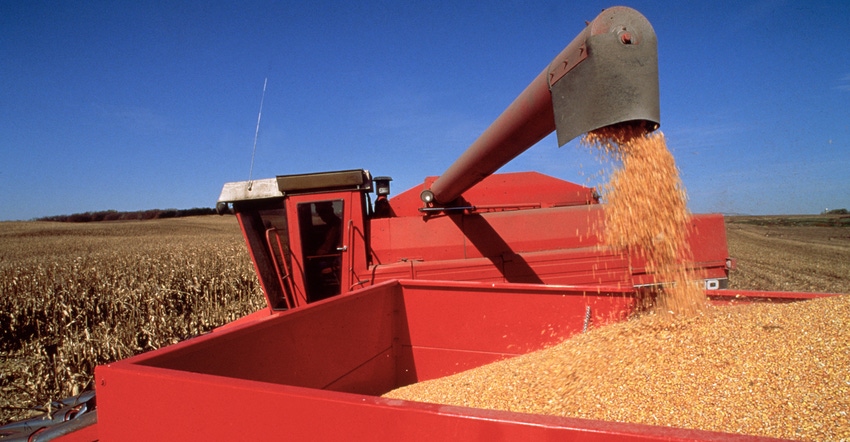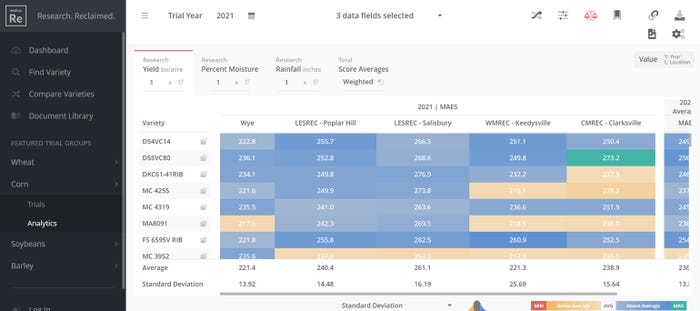
It’s that time of year. Those colorful seed catalogs are arriving in the mail just in time for the fall seed shopping season.
With so many options to choose from, it can be daunting trying to figure out not only what seeds will work for your farm and for your needs, but also in what fields they will perform best. Finding side-by-side, unbiased data on seed trials is a challenge.
Thankfully, a new tool is now available for Maryland producers that offers university seed trial data on an easy-to-use platform. It was developed by Medius, a company based in Bird in Hand, Pa., in partnership with the University of Maryland and is free to use for producers.
Medius has been around for six years and is an offshoot of another business, E.K. Bare & Sons Inc., that specializes in supply chain solutions for the potato and snack food industries, says Brad Halladay, founder and lead engineer.
Through conversations with potato growers and university researchers, Halladay says there was a need to develop a tool to manage crop research data, especially from universities. The tool was developed in about a year and a half, he says, and the company’s first clients were Potatoes USA —the national potato checkoff — and Michigan State University’s potato research program.
They have since added clients in 15 states — including peanut research programs in Alabama, Florida and Georgia, funded by the National Peanut Board — and even private farmer clients, Halladay says.
Clients organize their crop production data through Medius by paying a licensing fee; they then upload data into the platform as it becomes available.
The Maryland site uses data from the University of Maryland’s variety testing program, Maryland Grain Producers and the Maryland Soybean Board — the latter two of which pay for the license for producers to use free of charge.
In total, more than 5,600 variety records dating back to 2019 are available on the platform, most of which are corn and soybeans, but there is also barley and wheat variety data, too. New data for 2022 will be available as it’s collected and published by Maryland trial managers.
Using the tool
There are many ways a producer can use the tool. If you’re looking for data on a particular variety you’re interested in, you simply type in the variety number, and data on how it performed in university trials will pop up.

The site’s analytics tab allows you to see side-by-side comparisons of crops and can rank them based on yield, percent moisture, lodging and more.
If you just want to look at the university trials, you can do that, too. And each crop’s tech sheets from seed companies also are available.
“You have all kinds of flexibility and can play around with this as much as you want,” Halladay says.
Bottom line, Halladay says the tool is a place to get unbiased data on crops that can help any producer choose what they want and what’s best for their farm.
“So often what we have found is that there is good research out there, but it is not usable. Our goal is to put that data to work for you,” he says. “All we are is a conduit for that data to be stored and communicated and analyzed.”
For more information, email [email protected].
About the Author(s)
You May Also Like






